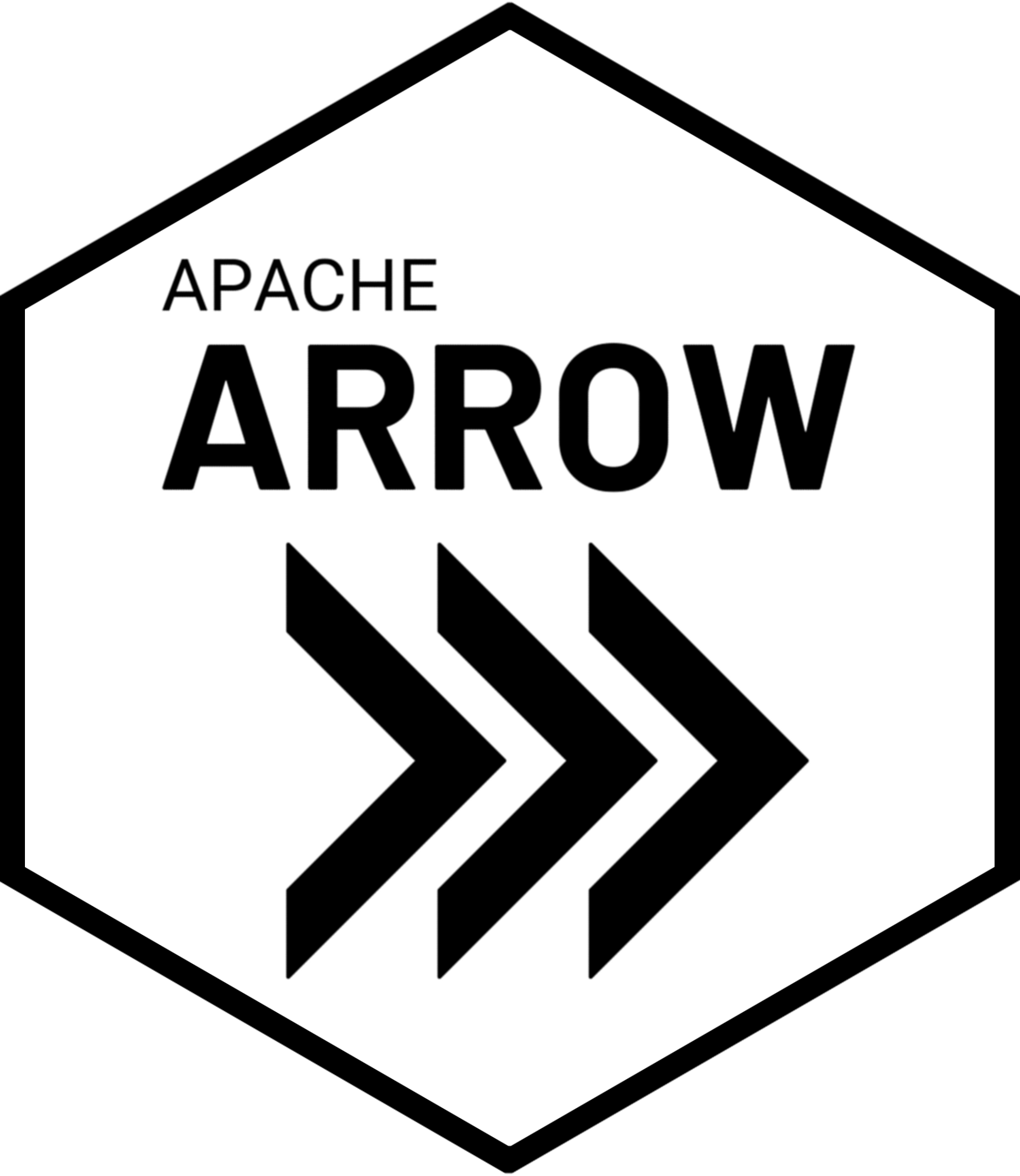Apache Arrow is a cross-language development platform for in-memory and larger-than-memory data. It specifies a standardized language-independent columnar memory format for flat and hierarchical data, organized for efficient analytic operations on modern hardware. It also provides computational libraries and zero-copy streaming, messaging, and interprocess communication.
The arrow R package exposes an interface to the Arrow C++ library,
enabling access to many of its features in R. It provides low-level
access to the Arrow C++ library API and higher-level access through a
{dplyr} backend and familiar R functions.
The arrow package provides functionality for a wide range of data analysis tasks. It allows users to read and write data in a variety formats:
- Read and write Parquet files, an efficient and widely used columnar format
- Read and write Arrow (formerly known as Feather) files, a format optimized for speed and interoperability
- Read and write CSV files with excellent speed and efficiency
- Read and write multi-file and larger-than-memory datasets
- Read JSON files
It provides data analysis tools for both in-memory and larger-than-memory data sets
- Analyze and process larger-than-memory datasets
- Manipulate and analyze Arrow data with dplyr verbs
It provides access to remote filesystems and servers
- Read and write files in Amazon S3 and Google Cloud Storage buckets
- Connect to Arrow Flight servers to transport large datasets over networks
Additional features include:
- Zero-copy data sharing between R and Python
- Fine control over column types to work seamlessly with databases and data warehouses
- Support for compression codecs including Snappy, gzip, Brotli, Zstandard, LZ4, LZO, and bzip2
- Access and manipulate Arrow objects through low-level bindings to the C++ library
- Toolkit for building connectors to other applications and services that use Arrow
Most R users will probably want to install the latest release of arrow from CRAN:
install.packages("arrow")Alternatively, if you are using conda you can install arrow from conda-forge:
conda install -c conda-forge --strict-channel-priority r-arrowIn most cases installing the latest release should work without requiring any additional system dependencies, especially if you are using Window or a Mac. For those users, CRAN hosts binary packages that contain the Arrow C++ library upon which the arrow package relies, and no additional steps should be required.
There are some special cases to note:
-
On Linux the installation process can sometimes be more involved because CRAN does not host binaries for Linux. For more information please see the installation guide.
-
If you are compiling arrow from source, please note that as of version 10.0.0, arrow requires C++17 to build. This has implications on Windows and CentOS 7. For Windows users it means you need to be running an R version of 4.0 or later. On CentOS 7, it means you need to install a newer compiler than the default system compiler gcc 4.8. See the installation details article for guidance. Note that this does not affect users who are installing a binary version of the package.
-
Development versions of arrow are released nightly. Most users will not need to install nightly builds, but if you do please see the article on installing nightly builds for more information.
In addition to the official Arrow R package documentation, the Arrow for R cheatsheet, and the Apache Arrow R Cookbook are useful resources for getting started with arrow.
If you encounter a bug, please file an issue with a minimal reproducible
example on GitHub issues.
Log in to your GitHub account, click on New issue and select the type of
issue you want to create. Add a meaningful title prefixed with [R]
followed by a space, the issue summary and select component R from the
dropdown list. For more information, see the Report bugs and propose
features section of the Contributing to Apache
Arrow page
in the Arrow developer documentation.
We welcome questions, discussion, and contributions from users of the arrow package. For information about mailing lists and other venues for engaging with the Arrow developer and user communities, please see the Apache Arrow Community page.
Please note that all participation in the Apache Arrow project is governed by the Apache Software Foundation's code of conduct.

